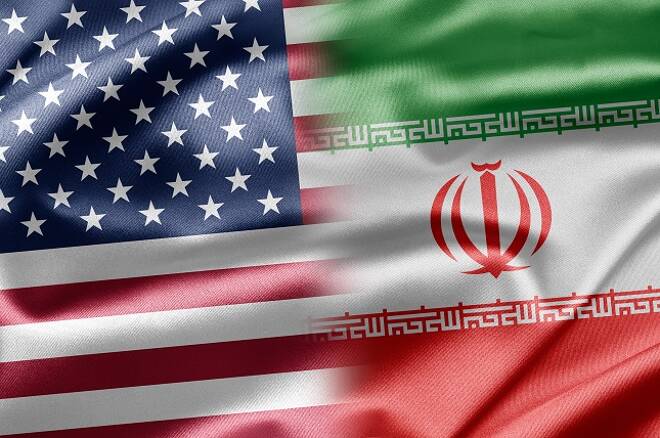Advertisement
Advertisement
How will U.S. Sanction on Iran Impact on the Global Markets?
By:
In this article, we'll explore the aftermath of Donald Trump's decision to withdraw from the agreement and reimpose sanctions, while asking how this is impacting on the global financial markets.
While there are many words that may be used to describe Donald Trump’s tenure as U.S. President, ‘dull’ is certainly not one of them. A list of his recent endeavors definitely makes for interest reading, from initiating a trade war with China to withdrawing from the controversial Iran Nuclear Deal struck by his predecessor Barack Obama back in 2015.
Essentially, this deal compelled the Iranian government to limit its nuclear ambitions, in exchange for the removal of the economic sanctions that had previously been improved on the international stage.
In this article below, we’ll explore the aftermath of Donald Trump’s decision to withdraw from the agreement and reimpose sanctions, while asking how this is impacting on the global financial markets.
The Iran Deal – What we Know so Far
In truth, Trump has been critical of the Iran Nuclear Deal ever since his 2016 election campaign, claiming that the nation is continuing to build a nuclear program despite providing no evidence to support this assertion.
He has remained on the attack throughout his tempestuous Presidency, so it came as no surprise when he officially withdrew from the agreement earlier this month. At the same time, Trump pledge to reimpose previously lifted sanctions on the Iranian economy, which will be rolled out in line with 90 and 180-day wind-down periods.
In doing so, of course, he has broken cover from his European allies, many of whom have been critical of the move (particularly in the current geopolitical climate). In fact, the leaders of the other five nations that brokered the original agreement back in 2015 expressed their disappointment at the decision, including French President Emmanuel Macron and Theresa May.
Unsurprisingly, Russia also expressed their dismay at the decision, although deputy Russian ambassador Dmitry Polyansky confirmed that his political colleagues were less than surprised.
There is a wider issue developing, however, with the U.S. also pledging to sanction any nations that refuse to decrease or cease their trade with Iran after the final wind-down period. The EU is taking drastic steps to negate this issue, by reviving legislation that will enable European companies to continue their current volume of trade with Iran while remaining immune to American sanctions.
This so-called “blocking statute” will elevate tensions between the U.S. and the EU, and there’s no doubt that this could place a huge strain on the global economy and financial markets.
Suggested Articles
- How Close Are We to A Stock Market Crash?
- Bitcoin’s Lightning Network: How Can it Solve Bitcoin’s Biggest Problem
How will These Developments Impact on the Financial Markets?
For now, of course, the markets have responded relatively well to the withdrawal of the U.S. from the Iran deal and their supposed trade war with China, thanks to a combination of deterministic trader outlooks and the fact that so much of Trump’s administration consists of smoke and mirrors.
In fact, stock and bond markets have both enjoyed gains since the announcement, while oil has experienced two significant price hikes as a result of Trump’s anti-Iran rhetoric.
Premium crude prices soared by $1.24 to $70.15 per barrel when Trump initially discussed the withdrawal back in March, while confirmation of the decision in May helped Brent oil to achieve a four-year high of $80 per barrel. These hikes have been largely inspired by the fact that the reintroduction of sanctions will reduce Iran’s oil trade, diminishing the global supply and placing a greater emphasis on demand.
While this is great news for investors and day traders with access to online trading platforms, the climate could change quickly if the EU does indeed to undermine the U.S. and negate sanctions. The US currently does have a financial connection to Iran and Europe may be worried that an escalation of the conflict can slow down its economy.
But after all, Trump is not a man who responds well to any kind of public challenge, and this could well lead to an economic impasse that has a more damaging impact on the global economy.
About the Author
Vanessa Bastoscontributor
Advertisement
